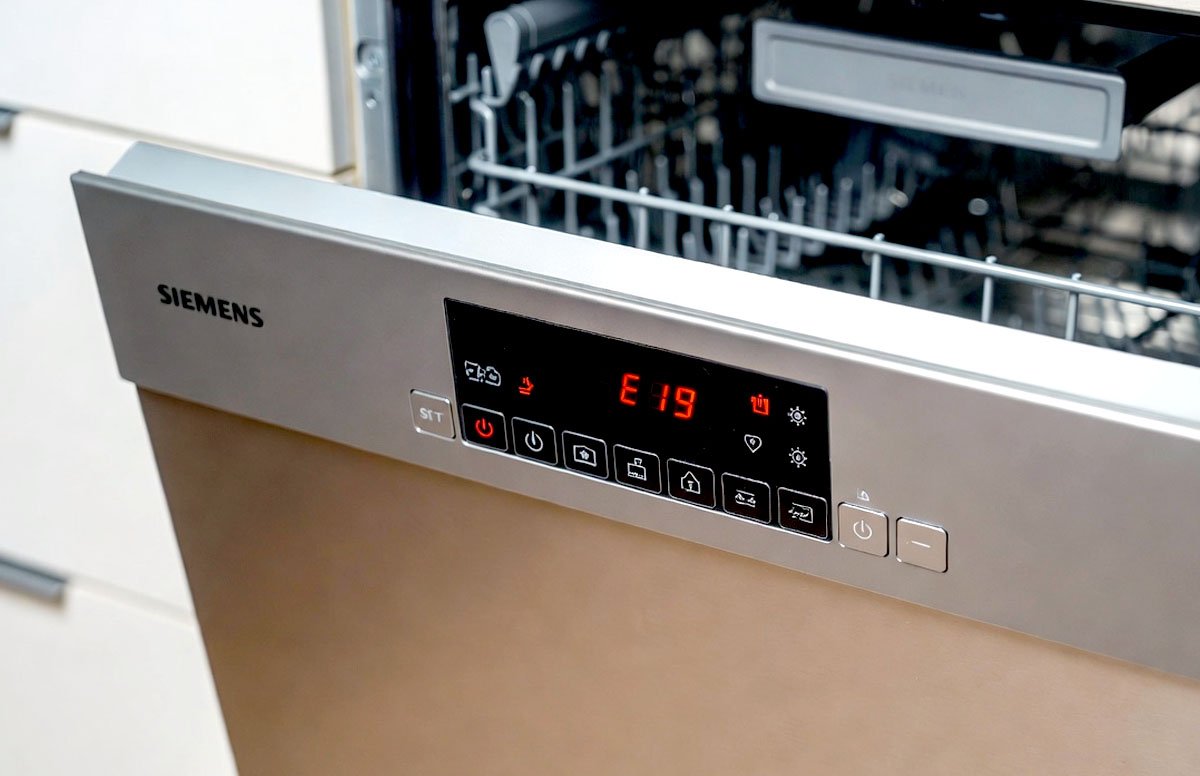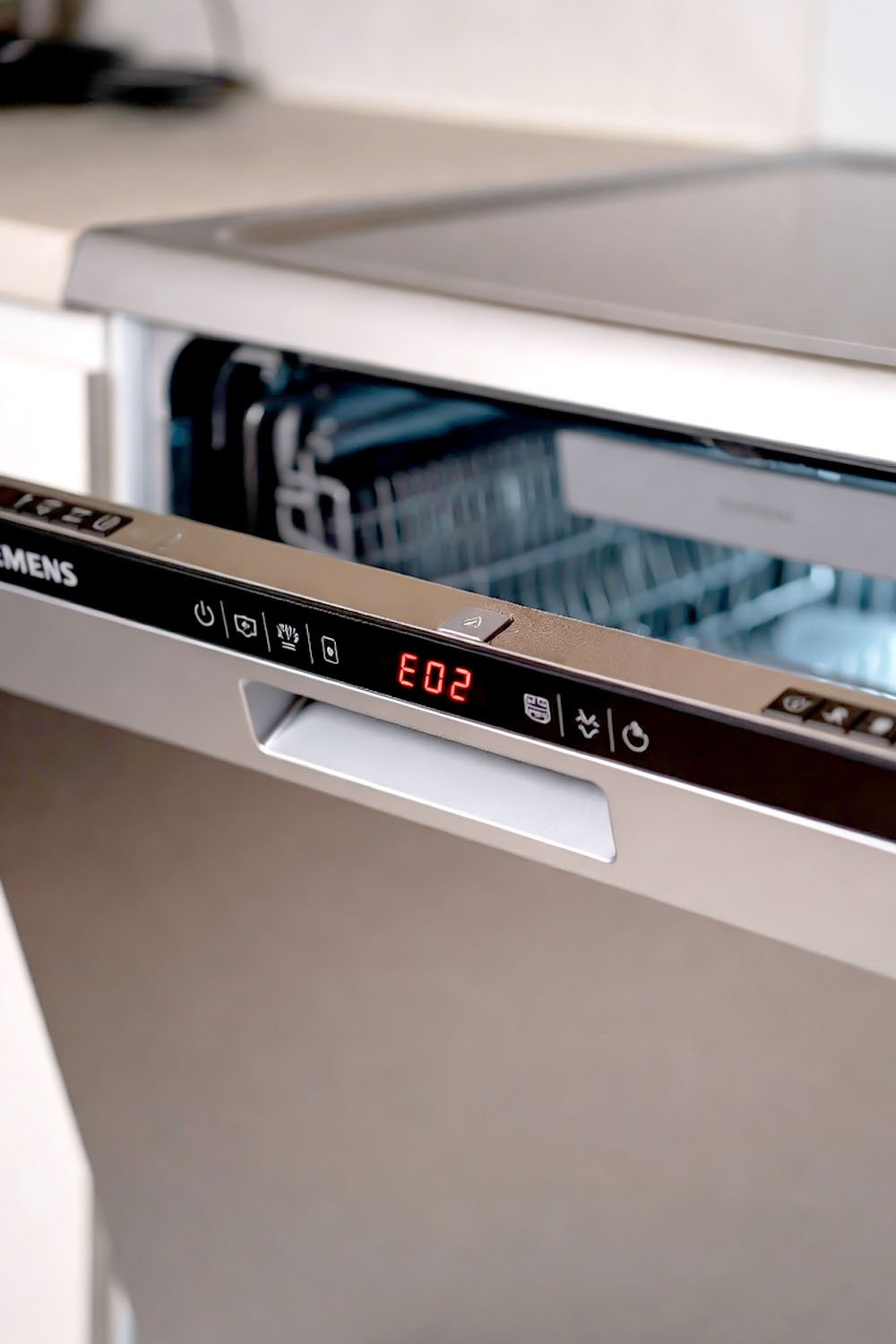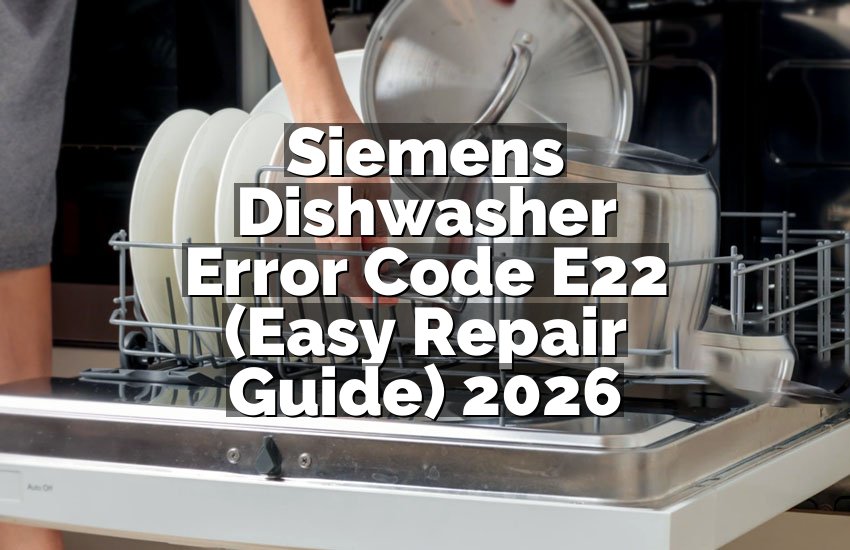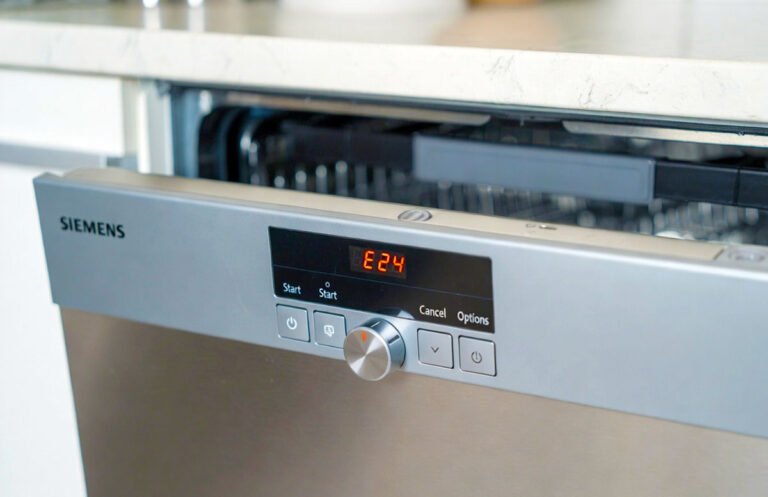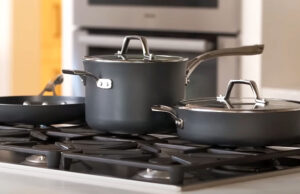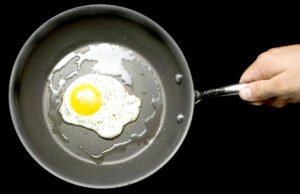As an Amazon Associate, I earn from qualifying purchases at no extra cost to you.
Problems with Bosch Dishwashers: 4 Common Issues and Fix Them
Bosch dishwashers are popular for their reliability and efficient cleaning. However, even the best appliances can face issues from time to time. If you’ve been struggling with your Bosch dishwasher, you’re not alone. From draining problems to poor cleaning performance, many users encounter common issues that can be easily fixed with a little troubleshooting. In this article, we’ll explore some of the typical problems you may experience with your Bosch dishwasher and provide tips on how to resolve them.
1. Bosch Dishwasher Not Draining Properly
One of the most frustrating issues you can face with a dishwasher is when it doesn’t drain properly. Water left in the bottom of the dishwasher after a cycle can leave dishes wet and unpleasantly dirty. There are several reasons why your Bosch dishwasher might not be draining correctly.
Clogged Drain Filter
The first thing to check when your dishwasher isn’t draining properly is the drain filter. Over time, food particles, grease, and other debris can clog the filter, preventing the water from draining. Bosch dishwashers are designed with a filter that needs regular cleaning to keep things running smoothly.
To clean the filter:
- Open the dishwasher and locate the filter at the bottom of the machine.
- Twist the filter counterclockwise to remove it.
- Rinse it under warm water to remove any debris.
- Reinstall the filter and test your dishwasher.
Blocked Drain Hose
If cleaning the filter doesn’t solve the problem, the next thing to check is the drain hose. A kinked, clogged, or bent drain hose can cause poor drainage. Sometimes, the hose can become blocked with debris, leading to water backing up.
To inspect the drain hose:
- Disconnect the dishwasher from the power supply.
- Locate the drain hose, usually at the back of the machine.
- Look for any visible blockages or bends that could restrict water flow.
- If necessary, detach the hose and clean it thoroughly with a pipe cleaner or similar tool.
Faulty Drain Pump
If neither the filter nor the hose is the issue, the problem may lie with the drain pump. The drain pump is responsible for pushing water out of the dishwasher. A malfunctioning drain pump may not be able to properly expel water.
To check the pump:
- You may need to remove the bottom rack and cover to access the drain pump.
- Check for any visible damage or obstructions.
- If the pump seems broken, you may need to replace it.
Check the Air Gap
The air gap is a small device located on the countertop near the sink. It prevents dirty water from flowing back into the dishwasher. If it’s clogged, it can affect drainage. Make sure the air gap is clean and free of blockages.
2. Bosch Dishwasher Not Cleaning Dishes Properly
If your Bosch dishwasher isn’t cleaning your dishes as it should, it can be frustrating, especially when you expect spotless plates after every cycle. Poor cleaning performance can be caused by several issues, including low water temperature, blocked spray arms, or detergent problems.
Dirty Spray Arms
The spray arms in your Bosch dishwasher are responsible for distributing water over your dishes. If they’re clogged with food particles or mineral buildup, they won’t be able to spray water effectively. As a result, your dishes may come out still dirty.
To clean the spray arms:
- Remove the bottom rack and carefully lift out the spray arm.
- Inspect the holes in the spray arm for any clogs.
- Clean the holes with a soft brush or toothpick.
- Rinse the spray arm under warm water and reattach it.
Low Water Temperature
Dishwashers rely on hot water to clean dishes effectively. If the water temperature is too low, your dishwasher may not clean as well. The ideal water temperature for dishwashers is between 120°F and 150°F.
To ensure the right water temperature:
- Check the temperature of your water using a thermometer.
- If the temperature is too low, consider adjusting your water heater settings.
- You can also run the hot water in your sink for a minute before starting the dishwasher to ensure it uses hot water.
Using Too Much or Too Little Detergent
Using the right amount of detergent is crucial for cleaning performance. Too much detergent can leave a soapy residue on your dishes, while too little can result in poor cleaning.
To fix detergent issues:
- Check your user manual for the recommended amount of detergent.
- If you’re using powder detergent, ensure it’s fresh and hasn’t clumped together.
- Consider switching to a different detergent brand if you’re still having trouble.
Overloading the Dishwasher
Overloading your Bosch dishwasher can block water flow and prevent the spray arms from reaching all your dishes. Be sure to load the dishwasher properly, leaving enough space between the items for water to circulate freely.
3. Bosch Dishwasher Not Starting
When your Bosch dishwasher refuses to start, it can leave you scratching your head. A dishwasher that won’t start can be caused by electrical issues, problems with the door latch, or a malfunctioning control board.
Faulty Door Latch
The door latch is an essential part of your dishwasher’s operation. If the door latch is damaged or not closing properly, the dishwasher may not start. You’ll need to check the door latch to make sure it’s securely closed and in good condition.
To check the door latch:
- Open the dishwasher door and inspect the latch mechanism.
- If it feels loose or broken, the latch may need to be replaced.
- You can also check the door seal to ensure it’s not damaged, as this can also prevent the dishwasher from starting.
Tripped Circuit Breaker
A tripped circuit breaker can cut off power to your Bosch dishwasher, preventing it from starting. If you’ve checked the door latch and the dishwasher still won’t start, check the circuit breaker to see if it’s been tripped.
To check the circuit breaker:
- Locate your home’s electrical panel.
- Find the breaker that corresponds to the dishwasher and flip it to the “off” position.
- Wait a few seconds, then flip it back to the “on” position.
- Try starting the dishwasher again.
Faulty Control Board
If the control board is malfunctioning, it can prevent your Bosch dishwasher from starting. The control board is responsible for sending signals to the dishwasher’s components, so if it’s not working, the dishwasher won’t function.
To check the control board:
- If you’re comfortable, you can remove the control panel to access the board.
- Look for any visible signs of damage, such as burn marks or loose connections.
- If the control board is damaged, it may need to be replaced.
4. Bosch Dishwasher Leaking Water
Water leaks are one of the more common and concerning problems with Bosch dishwashers. Leaking can damage your kitchen floor and cause long-term issues if not addressed quickly. The most common causes of leaking are a worn door seal, a clogged drain pump, or a broken hose.
Worn Door Seal
The door seal is responsible for preventing water from leaking out of the dishwasher during the wash cycle. Over time, the seal can wear out, causing water to escape.
To check the door seal:
- Inspect the rubber seal around the door for any cracks, tears, or signs of wear.
- If the seal looks damaged, it may need to be replaced.
- Clean the seal regularly to prevent dirt and debris buildup, which can also lead to leaks.
Clogged or Damaged Drain Pump
If the drain pump is clogged or broken, it may cause water to leak out during the drain cycle. This problem is typically accompanied by poor drainage as well.
To address this:
- Inspect the drain pump for blockages or damage.
- If necessary, clean the pump or replace it if it’s broken.
Faulty Hose Connections
Leaking can also occur if the hoses connected to your Bosch dishwasher are loose or damaged. Check all hose connections to ensure they are tight and secure.
To inspect the hoses:
- Look for any visible cracks or signs of wear on the hoses.
- Ensure that all connections are tightened properly.
- If you find any damaged hoses, consider replacing them.
I hope this guide has helped you understand the common problems with Bosch dishwashers and how to fix them. While dishwashers are incredibly reliable appliances, occasional issues can arise. By staying on top of maintenance and troubleshooting these common problems, you can extend the life of your dishwasher and keep it running smoothly.
Frequently Asked Questions (FAQs)
Is it normal for a Bosch dishwasher to make noise during operation?
Yes, it’s normal for Bosch dishwashers to make some noise during operation. The sounds you hear are usually from the spray arms or the pump working. However, if the noise is unusually loud or accompanied by vibrations, it could indicate an issue like a clogged spray arm or a problem with the motor.
Can I use any detergent in my Bosch dishwasher?
While you can use a variety of detergents in your Bosch dishwasher, it’s best to choose one that is compatible with the dishwasher’s cleaning system. Avoid using hand-washing liquid or laundry detergent, as they can cause excessive suds and damage the dishwasher.
Do I need to clean the filter of my Bosch dishwasher regularly?
Yes, it’s important to clean the filter of your Bosch dishwasher regularly to ensure proper drainage and prevent odors. Depending on how often you use your dishwasher, cleaning the filter once every few weeks should be sufficient.
Is it safe to use a Bosch dishwasher with a broken door latch?
No, it’s not safe to use a Bosch dishwasher with a broken door latch. The door latch is essential for ensuring the dishwasher operates correctly and safely. If the door won’t close properly, the dishwasher may not start or could leak water.
Can a Bosch dishwasher still work if it’s leaking water?
While a Bosch dishwasher can still function with a small leak, it’s important to fix the leak as soon as possible. Prolonged water leakage can damage your kitchen floor and other components of the dishwasher. It’s best to address the leak immediately to avoid further damage.
Do I need to call a technician for a Bosch dishwasher that won’t drain?
Not necessarily. Many drainage issues can be resolved by cleaning the filter, drain hose, or pump. However, if the problem persists or if you suspect a faulty component, you may need to call a technician to diagnose and repair the issue.
Is it common for Bosch dishwashers to have issues with cleaning performance?
While Bosch dishwashers are known for their excellent cleaning performance, there are a few common reasons why cleaning may not be up to standard. These include clogged spray arms, low water temperature, and using too much or too little detergent. Regular maintenance can help prevent these issues.
Can I fix a Bosch dishwasher myself, or should I hire a professional?
You can often fix minor issues with a Bosch dishwasher yourself by following the troubleshooting steps mentioned in this guide. However, if you’re dealing with more complex problems like electrical issues or a broken control board, it’s best to hire a professional to avoid further damage or voiding your warranty.

